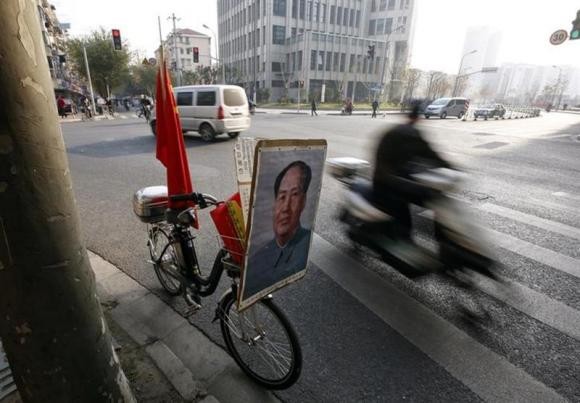
Anti-Maoism sentiments have subtly started emerging, as the 'democratic' United States observe China celebrating the 120th birth anniversary of Mao Zedong; the founding father of the People's Republic of China.
Countries denouncing the communist system of governance have always been skeptical on whether Mao must still be revered as a revolutionary in an era that has increasingly necessitated joining the club of 'modern' nations, defined by democracy and freedom. Chairman Moa's system converted China into a socialist state, with industry and business being controlled by state ownership and other dreaded socialist reforms implemented in all areas of the society.
Faces frowned in the US and other democratic nations on Thursday after Chinese President Xi Jinping said that China will hold high Mao's thoughts and aspirations "forever" while pursuing the nation's rejuvenation. Hailing Mao and other members of generations of revolutionaries, Xi referred to them as "great figures" in fighting national and class oppression, as well as standing at the front of the positive tide in the Chinese nation and world, the Xinhua news agency reported.
It is no surprise, however, that Xi's reverence of Mao as "a great proletarian revolutionary, strategist and theorist," did not go too well with western thinkers and media.
In an op-ed piece, written by Gao Wenquan - a Chinese immigrant to the US who has been a senior policy adviser at the Human Rights in China - and published by the flagship US newspaper New York Times, it is entreated that "China must purge Mao's Ghost".
"The leadership's celebrations of his legacy are an alarming reminder that China has a long way to go before it can join the league of modern nations," the NY Times' op-ed reads.
"It's no surprise that China's leaders have chosen to honor Mao with such pomp," Wenqian's article continued, "In the decades following the establishment of the People's Republic in 1949, Mao's cult of personality formed the cornerstone of the one-party system. Under the next paramount leader, Deng Xiaoping, the cult of Mao moderated, and limited criticism of his worst disasters was permitted."
The article explored further on how Mao lived in luxury while tearing his country in turmoil and jeopardy that was only halted after his death in 1976.
Elsewhere in the world, it surprised many that the birth anniversary of Mao was even a bigger event than Christmas in China. In an article titled 'In China, Chairman Mao still bigger than Jesus', The Telegraph said that with the birth anniversary of the leader coinciding with the festival, "Christmas Day meant nothing" in China.
In a seeming tug-of-war between democracy and communism, the world tends to be taking too long to realize that as long as there is no danger to international peace, there is no harm in letting people support any kind of governance, political system or religion.









